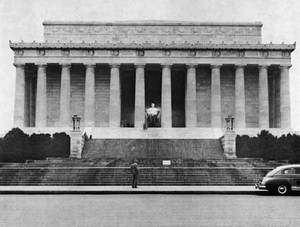The mood at the end of the annual Davos retreat of big moneybags was, in a word, scared. (Picture from Freakingnews.com.)
They’re looking at the world economy the way New Orleanians looked at the TV weather shows a day before Katrina hit. They see the thing blossom before them, they’re told it’s headed right for them, but there are no freeways out of the money business. You gotta own something.
Why panic? The cataclysm has two components:
- Big Shitpile, the corruption and greed which created the housing bubble; and
- Stagflation, our dependence on oil and its suppliers’ ability to manipulate the price.
History shows that whenever excess, a bubble, is found within the market, you can’t turn things around until that excess is wrung completely out. Think about the dot-bomb. Some of the best companies lost half their value. Some lost 90%. Many went under completely. Now that the housing bubble is obvious that is what has to happen.
And the impact of making that happen is catastrophic. Think about it. You’ve got a $250,000 house. Before this is over it might be worth $125,000, it might be worth far less. Your buyer has to qualify for a fixed-rate mortgage, and put down a substantial down payment. Now how much do you owe on that house? I’d venture to say very few mortgages are half-paid off. And what happens to a loan when the value of the collateral falls below what you’ve borrowed? Well, on Wall Street they call that a margin call.
What we’re seeing right now might be just the tip of the iceberg. Because all the excess has to be wrung out — in home prices, in the mortgages underlying them, in the derivatives and other crap made with those mortgages.
Yet that’s just half the problem.
The other half is oil, specifically the Arabs’ ability to manipulate the market and the price we’ll have to pay to end that manipulation.
It’s very cheap to pump a barrel of oil in Saudi Arabia. It’s much cheaper than pumping it anywhere else. So the actual cost of a barrel of Arab oil is very, very low, and the profit margin on it is very, very high.
Finding new oil somewhere else doesn’t change that. We won’t find another supply which is that easy to get to market. Every other type of hydrocarbon — coal, oil sands, etc. — has the same margin problem.
So let’s assume we bring in new supplies, at something like the current price. The Arabs can break that investment by simply dropping their prices. Their margins remain enormous.
That’s why a War Against Oil is necessary to break the Arab hold on our energy market, and their control of global growth. Only by replacing oil with geothermal, solar, and wind supplies, only a true hydrogen economy, can hope to break this market stranglehold.
Yet wars are expensive. Even economic ones. You have to re-arrange all sorts of public policies in order to pursue the goal. You have to re-arrange your foreign policy as well. Once the Arabs know what we’re up to — and we’re going to have to turn a supertanker of a society around — they’re going to be mad. They could boycott our market, shooting up our price while selling those supplies to more complacent nations, in order to turn our policy around. They have us by the short hairs.
The best we can do, moving quietly and stealthily, is see another decade of stagflation as in the 1970s. Each time growth goes up, so does the oil price. They control our accelerator, they control our brakes. Don’t thank the Bushes for this. Look in the mirror, at literally two generations of American involvement in the Middle East. Involvement you supported, endorsed with your dollars and your votes.
I’m recommending we not go stealthily. I’m recommending the kind of economic effort we expended to win World War II. Obviously the risk is that, in the short term, this could cause the kind of economic shock we saw in the Great Depression.
So when the rich have long faces, there’s a reason for it.













It seems like a “Manhattan Project” for the War on Oil is much more likely to lead to a huge economic boom than a depression. The problem is that the benefits will be for the middle class, not the growing class of feudal lords that seems to have control of the government. High oil prices are a concern for them, but something that can be easily offset by increasingly turning to shoddy overseas production and outsourcing of jobs. Disruptive change and new players like what would be introduced by the “Manhattan Project” are another matter entirely. When you are winning by a comfortable margin, the last thing you want is somebody changes the rules of the game on you.
It seems like a “Manhattan Project” for the War on Oil is much more likely to lead to a huge economic boom than a depression. The problem is that the benefits will be for the middle class, not the growing class of feudal lords that seems to have control of the government. High oil prices are a concern for them, but something that can be easily offset by increasingly turning to shoddy overseas production and outsourcing of jobs. Disruptive change and new players like what would be introduced by the “Manhattan Project” are another matter entirely. When you are winning by a comfortable margin, the last thing you want is somebody changes the rules of the game on you.